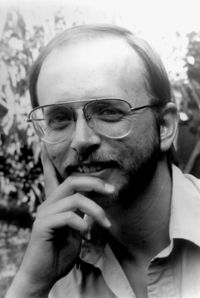A Quote by Marcus Aurelius
That which has died falls not out of the universe. If it stays here, it also changes here, and is dissolved into its proper parts, which are elements of the universe and of thyself. And these too change, and they murmur not".
Related Quotes
The total quantity of all the forces capable of work in the whole universe remains eternal and unchanged throughout all their changes. All change in nature amounts to this, that force can change its form and locality, without its quantity being changed. The universe possesses, once for all, a store of force which is not altered by any change of phenomena, can neither be increased nor diminished, and which maintains any change which takes place on it.
In magical thought the human body is the 'microcosm' (small representation) of the Earth, which is the 'macrocosm'. The Earth is also the microcosm of the Universe. In other words, we are pictures of the essence of the planet and thusly of the universe. As such, when we change ourselves, we change the Earth and the universe.
In all of my universe I have seen no law of nature, unchanging and inexorable. This universe presents only changing relationships which are sometimes seen as laws by short-lived awareness. These fleshy sensoria which we call self are ephemera withering in the blaze of infinity, fleeting aware of temporary conditions which confine our activities and change as our activities change. If you must label the absolute, use its proper name: Temporary.
Everything is only for a day, both that which remembers and that which is remembered. Observe constantly that all things take place by change, and accustom thyself to consider that the nature of the Universe loves nothing so much as to change the things which are and to make new things like them. For everything that exists is in a manner the seed of that which will be.
The universe shows us the life of God, or rather it is in itself the life of God. We behold in it his permanent action, the scene upon which his power is exercised, and in which all his attributes are reflected. God is not out of the universe any more than the universe is out of God. God is the principle, the universe is the consequence, but a necessary consequence, without which the principle would be inert, unfruitful, impossible to conceive.
We lump together all things that are beyond the capacity of all of us collectively to understand-and one name we give to all those things together is God. Therefore, God is the creative force, the sustaining power, that which motivates toward constant change, the overall intelligence which governs the universe by physical and spiritual law, truth, love, goodness, kindness, beauty, the ever-present, all-pervading essence or spirit, which binds everything in the universe together and gives to everything in the universe.
Mathematics is not only real, but it is the only reality. That is that entire universe is made of matter, obviously. And matter is made of particles. It's made of electrons and neutrons and protons. So the entire universe is made out of particles. Now what are the particles made out of They're not made out of anything. The only thing you can say about the reality of an electron is to cite its mathematical properties. So there's a sense in which matter has completely dissolved and what is left is just a mathematical structure.
Thus we arrive at the singular conclusion that of all the information passed by our cultural assets it is precisely the elements which might be of the greatest importance to us and which have the task of solving the riddles of the universe and of reconciling us to the sufferings of life -- it is precisely those elements that are the least well authenticated of any.
For myself, I like a universe that, includes much that is unknown and, at the same time, much that is knowable. A universe in which everything is known would be static and dull, as boring as the heaven of some weak-minded theologians. A universe that is unknowable is no fit place for a thinking being. The ideal universe for us is one very much like the universe we inhabit. And I would guess that this is not really much of a coincidence.







































